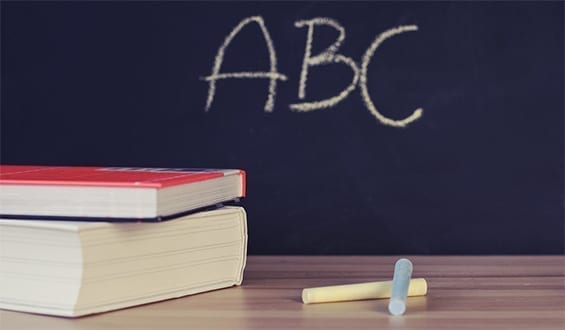We all know that the Texas legislature is back in session. The demonstrators are in front of the capitol and we have dusted off the same arguments that come up every session but rarely see the light of day with Texas’ super conservative majority: gambling, marijuana, and of course, school vouchers. Recently, Governor Abbott appeared at one of the rallies and announced that this would be the year that school vouchers would finally pass, despite the inability of the bill to make it out of the state house committee in 2015.
We all know that the Texas legislature is back in session. The demonstrators are in front of the capitol and we have dusted off the same arguments that come up every session but rarely see the light of day with Texas’ super conservative majority: gambling, marijuana, and of course, school vouchers. Recently, Governor Abbott appeared at one of the rallies and announced that this would be the year that school vouchers would finally pass, despite the inability of the bill to make it out of the state house committee in 2015.
In order to flesh out why this is a big deal, we need to first understand what school vouchers are. The current system of school funding, ruled barely constitutional by the state supreme court in 2016, allocates a $5,140 per student base rate to all school districts, and the local school district tax base makes up the remainder of the funding per student. School vouchers include a couple of different means of accomplishing the same thing, giving the allocated amount of money back to the parents to spend toward whatever school to which they wish to send their kids.
The voucher argument is unique because it is a bit of a political juxtaposition, often supported simultaneously by different ends of the political spectrum: the religious right fighting for their ability to send their children to parochial schools or fund their own home school empire, and conversely, with low income families who feel trapped into the cycle of education mediocrity by the current system. The idea is maligned by teachers’ unions, and is not supported by many poorer rural school districts represented by Republicans, as well as some of the wealthier areas represented by Democrats.

Texas has a public education system that is in desperate need of overhaul. Our per capita spending is among the lowest in the country and we have the outcomes to match: recently ranking 43rd of all states in the total quality of education. There is a tremendous dichotomy of quality within the state, with the wealthiest school districts being competitive with any school district in any other state, but way too many kids of lower socio-economic status being left further and further behind. Teachers’ organizations will complain that the lack of involvement in the home is the primary culprit for underperforming students, and in contrast, many parents will complain about the bureaucracy of public education and how it does not serve their kids well. Both arguments have merit.
This ultimately becomes a philosophical argument: how much authority should parents have to decide what schools their children attend? Many people see this as a veiled attempt for religious extremists to acquire state tax revenue to support teaching their religious ideology. Other see this as a redistribution of the taxes that parents already pay through the state property tax system, and giving them some determinant authority on how to spend it.
A lot of parents would like to have the ability to send their children to private school, but it is not necessarily economically feasible. This creates a bit of an educational glass ceiling, where the best educational resources are pooled at the top of the wealth pyramid, and those without the economic means are left to the luck of the draw with wherever they can afford to live and the quality of education in that district.
On the other hand, we already have an underfunded school system, and taking money away from school districts who are already struggling will surely create a completely new set of problems. It is not practical to assume that every parent will be able to send their child to private school; the capacity to do that does not exist, and many rural districts simply do not have another option that would be geographically feasible.
At the end of the day, both solutions will have a number of unintended consequences that will likely result in further negative outcomes for some children. Some kids will get left behind in the existing structure because the public school system is just not capable of meeting the needs of every situation. However, removing the funding mechanism for schools on life support will not be an improvement for the students whom they serve. As much as I want to give an opinion with a definite right and wrong, I find myself unable to definitively give an answer that will best serve the greatest number of children. Perhaps the point is that the state legislature should spend the time it has pursuing a better solution than what we have, instead of creating political clickbait statements meant to help them get re-elected next year. One way or another, our children deserve better.


Join the conversation!